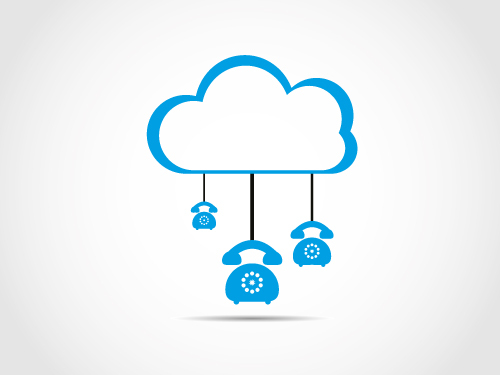The Advantages and Disadvantages of Cloud VoIP
One of the many benefits of using VoIP technology for your business is the ability to make and receive voice and/or video calls no matter where your employee is in Singapore or outside the country. When it comes to choosing which type of VoIP service is right for your business, however, you also need to know how it’s done.
You might hear unfamiliar terms from your VoIP service provider in Singapore such as cloud VoIP, hosted VoIP system, hosted PBX, etc., and not know what type of service you’re getting. Although the basic principles of all VoIP services are the same, there are a few differences that you need to consider.

Let’s look at cloud VoIP and find out why it’s the most recommended VoIP service for small and medium-scale businesses.
History of VoIP Technology
Voice over Internet Protocol (VoIP) was once a niche technology that has now become indispensable in businesses not just in Singapore, but the rest of the world. The history of VoIP is tied up with cloud computing because their potential became known during the advent of the Internet’s precursor, Advanced Research Projects Agency (ARPANET), and its successful two-way voice communications. Then in 1975, the first cellular phone call was made possible through Motorola, which opened avenues for further developments in the VoIP Singapore industry.
It was not until the mid-1990s when VoIP and hosted PABX technology took off when Internet became accessible to a lot of people. In 1995, the first Internet phone was invented, but it did not become a popular tool for communication, because it needed a lot of equipment to make a successful call.
Significant changes were made when manufacturers decided to produce hardware that allowed computer-to-phone and phone-to-computer calls and call switching. Switching refers to the conversion of a voice packet into digital packets using a switch, so that it can be read by the public switched telephone network (PTSN). This breakthrough meant that VoIP from www.crystalvoice.com.sg in SIngapore no longer needs to rely on computer and other hardware to make calls through the Internet
History of Cloud Computing
Cloud computing is considered an invaluable tool in information technology infrastructures and businesses, but not everyone knows it has been around for some time and has gone through so many changes. The principle of cloud computing relies on the idea that you do not need a lot of machines to store information that can be accessed by more than one individual. In the 1950s, multiple machines had to be installed in institutions that needed a computer and a number of terminals so they can be accessed by a lot of people.
In the 1970s, the idea of virtualization was realized when multiple computers were able to access and share the same processing environment and resources. This meant that it was possible to increase network solutions without having to use more equipment. The development of cloud computing accelerated when the Internet became available to a lot of people, and computers were used not just in offices, but also at homes.
In the early 2000s, VoIP Singapore third-party providers for storage, applications, and computation solutions appeared to cater to the growing needs of different businesses. The recent trend in cloud computing has allowed companies to choose whether they want to hire a third-party for the resource or to set up their own private cloud instead of using a public cloud for more security.

What Cloud VoIP Means
Cloud VoIP, or cloud telephony, refers to the voice and other services that replace the conventional telephone equipment, like the hosted PBX. PBX means private branch exchange, or the connection between a central switch and a telephone system used by a company. What these all means is that all the employees within the company can make calls to other employees, but other people outside the company can still receive calls from and make calls to that company. In cloud VoIP, however, all the equipment will be provided in a data center and only the telephones or other devices will be found in the office.
Some companies, however, prefer their own telephone system, but do not want to host the server. Cloud hosted PABX is a type of hosted PBX or hosted telephony service, which means that the server is hosted in another location to reduce network connectivity costs and simplify multiple site connectivity.
Some VoIP service providers might also mention the term hybrid, which means that some of your company’s sites can be premise-based with servers dedicated to a location, and your company also has the technology and is hosting some of the data within the premises.
Disadvantages of Cloud VoIP
Although cloud VoIP can offer the same benefits as other VoIP services such as an IP PBX telephone system, it has its downsides.
-
1. The voice quality is not guaranteed unless you can manage the VoIP connections
2. You will be dependent on the vendor if it is a hosted VoIP system
3. You will be dependent on the vendor’s data center or the public Internet if it’s a hosted VoIP system
4. There may be outside disruptions if your Internet service provider frequently drops the Internet service
5. Your company will need to purchase IP phones, router, ethernet, and ethernet cords
Advantages of Cloud VoIP
With cloud VoIP for your business, you will get the same benefits of a PBX phone system or hosted PABX that bigger VoIP Singapore companies use.
-
1. You will save more with local and international calls if you’re a small business
2. There is no need to run your own phone system like the PBX phone system
3. You will only pay for what you need if it’s a hosted PBX
4. Your employees don’t need to be at the desk to make calls, similar to an IP PBX telephone system
5. It’s easy to use and has a low start-up cost that is ideal for small businesses

